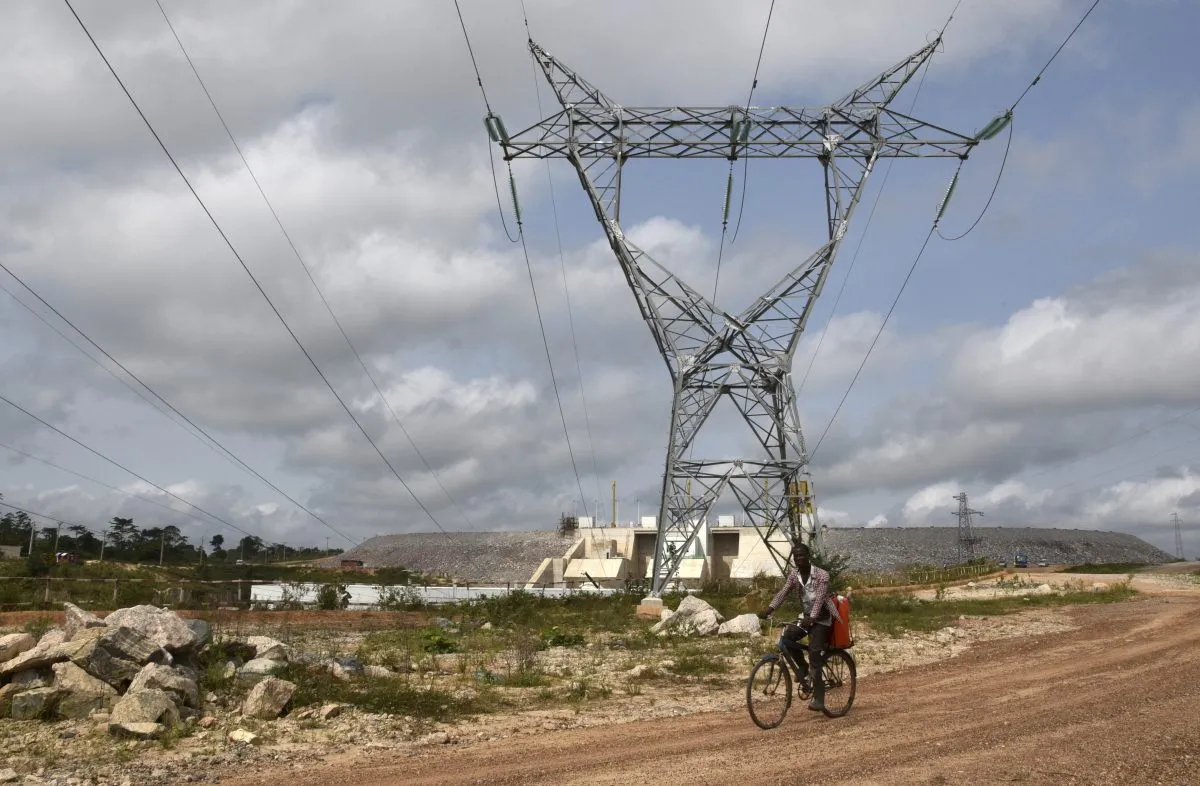Electricity is essential for driving economic opportunities, job creation, education, and healthcare services. 83% of the world’s population without electricity resides in Sub-Saharan Africa. This equates to nearly 600 million people who are currently locked out of economic opportunities due to the lack of access to electricity. Without electricity, achieving a more equitable, prosperous, and competitive future for Africa remains challenging.
At COP28 the World Bank committed to connecting 100 million Africans to affordable energy by 2030. During the 2024 World Bank/IMF Spring Meetings the World Bank and African Development Bank (AfDB) jointly announced an ambitious plan to ramp up electricity access for 300 million people by 2030. AfDB is already prepared to commit to connecting 50 million people, with intentions to go beyond that number. The joint commitment by the World Bank and AfDB to provide affordable access to energy for 300 million people by 2030 marks a significant step towards addressing the energy access challenge in Africa. Collaborative efforts across various sectors, including finance, government collaboration, and private sector involvement, are needed to achieve this goal.
Investing in increasing access to electricity in Africa presents a compelling opportunity for the US private sector. It would create investment prospects in the distributed renewable energy sector, valued at $9bn, including grid-connected renewable energy. Highlighted in Power Africa’s 2023 Annual Report is the $391m MCC (Millenium Challenge Corporation) Benin Power Compact (2017–2023), positioned to positively impact over 11 million individuals, signifying one of the most substantial US commitments to solar off-grid electrification within a single country.
Appealing returns
Returns in emerging markets are comparatively appealing, especially in stable countries with manageable long-term political risks. A report by Mercer and MiDA Advisors reveals that infrastructure assets typically align with the investment goals of institutional investors due to their long-term and consistent inflation-linked returns. McKinsey & Company reports that Africa’s energy demand is expected to double by 2040, creating a significant market for energy infrastructure investments. As the energy sector grows, investing in funds and financial products with specific mandates for energy access and renewable energy projects can offer exposure to a burgeoning market with untapped potential.
Investing in increasing access to electricity in Africa aligns with environmental, social, and governance (ESG) considerations. The Mercer and MiDA Advisors report also highlights that asset owners are increasingly embracing the notion of investing in funds targeting market-rate financial returns alongside positive social and/or environmental outcomes.
The adoption of sustainable investing reached 80% in 2019, propelled by the rising constituent demand (81%) and financial return potential (78%). Renewable energy projects contribute to mitigating climate change by reducing greenhouse gas emissions and promoting environmental sustainability. Improving energy access in Africa also has significant social impacts, empowering communities, driving economic growth, and enhancing living standards.
Many US investors have portfolios heavily concentrated in developed markets, and venturing into emerging markets like Africa can provide diversification benefits, reducing overall portfolio risk. Diversifying into emerging markets like Africa, which have low correlations with developed markets, can reduce overall portfolio volatility and enhance risk-adjusted returns.
DFIs take the lead
Development finance institutions (DFIs) are playing a growing role in shaping the infrastructure landscape in Africa due to their ability to bear political risk, access government support, and provide long-term financing. As the required capital to expand energy access in Africa is substantial, various private equity firms, debt financiers, and specialised infrastructure funds are becoming involved in the market. Additionally, there is an increasing popularity of multi-finance and blended solutions to fund energy transition. This has led to increased interest in sustainability-linked loans that encourage borrowers to meet specific ESG objectives.
At the 2022 G7 Summit, the Partnership for Global Infrastructure and Investment (PGII) was launched, pledging $600bn for sustainable infrastructure projects in Africa and other developing regions. The US committed $200bn through PGII over five years, focusing on climate-resilient infrastructure and clean energy supply chains. Power Africa, a US-led initiative, has supported Africa’s energy transition with investments and guarantees totalling at least $3bn in key countries like Ethiopia, Ghana, Kenya, Liberia, Nigeria, and Tanzania. As Africa prioritises decarbonisation and energy access, attracting public-private investments and alternative financing is crucial, offering significant opportunities for forward-thinking investors eyeing Africa’s bright prospects.
Investing in Africa’s energy sector for increased electricity access presents a win-win scenario with significant government commitment for US private sector investors. It offers the potential for attractive financial returns, and portfolio diversification benefits, and aligns with ESG principles, making it a compelling investment opportunity. Now is the opportune time for private sector investors in the United States to take advantage of commitments and guarantees provided by governments and DFIs, and to contribute to the growth of Africa’s energy sector. This represents a financially viable and socially responsible investment choice aligned with the fiduciary obligations of US institutional investors.
Want to continue reading? Subscribe today.
You've read all your free articles for this month! Subscribe now to enjoy full access to our content.
Digital Monthly
£8.00 / month
Receive full unlimited access to our articles, opinions, podcasts and more.
Digital Yearly
£70.00 / year
Our best value offer - save £26 and gain access to all of our digital content for an entire year!

 Sign in with Google
Sign in with Google 



